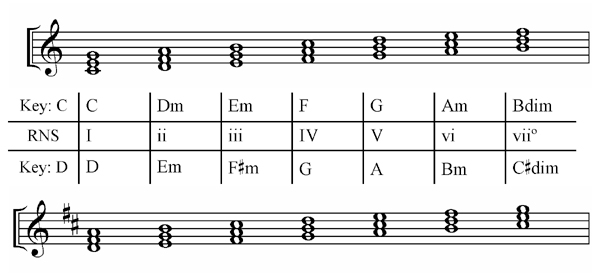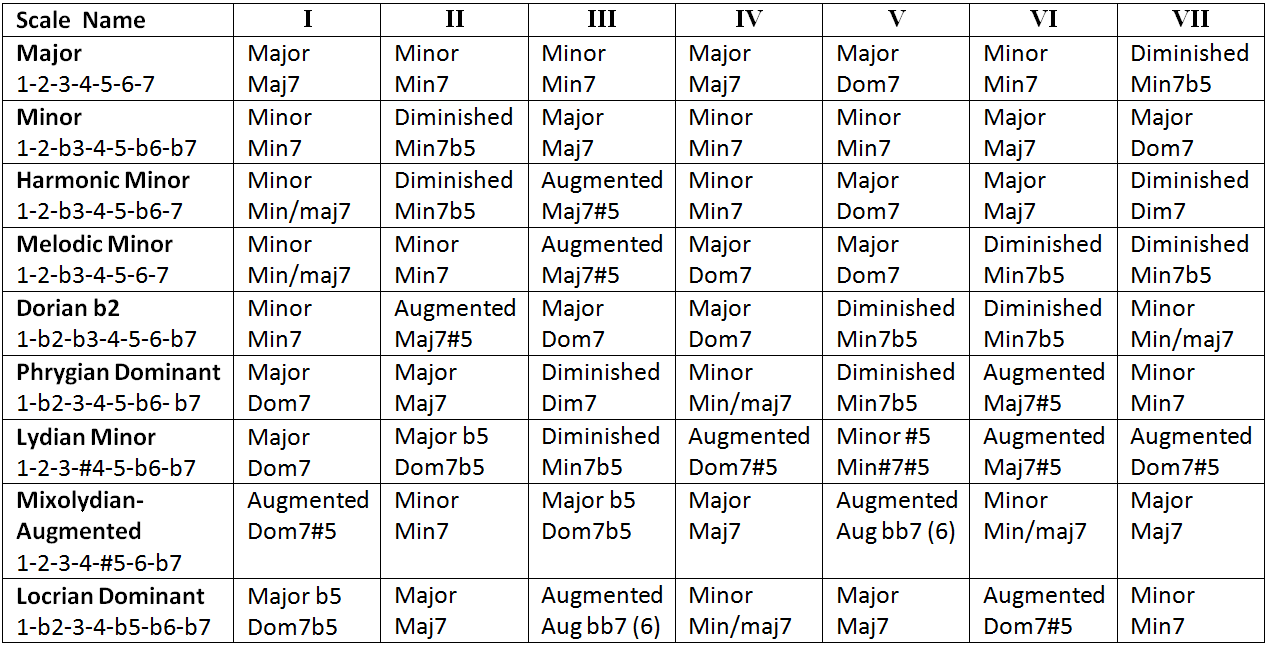im little confused about chords when trying to create chord progressions. Example c major scale (C,D,E,F,G,A,B,C) I know that the c chord is (C,E,G) but when it comes to the rest of the chords i get a little confused for the D chord i thought it would be a D major chord (D,F#,A) cause its a major scale but iv read that its a D minor chord (D,F,A). so how do you know when it supposed to be a major or minor chord in the scale you want to use for your chords? what would the E chord be? and so forth
You are using an out of date browser. It may not display this or other websites correctly.
You should upgrade or use an alternative browser.
You should upgrade or use an alternative browser.
little help with chords
- Thread starter drought
- Start date
Pumpthrust
New member
First thing first, learn how to spell your scales, knowing what sharps or flats are in a key will keep you from tripping up when trying to determine the chords of a particular key. The best way to do this is to study the circle of keys and memorize that *****.
Second, study these charts,


More helpful charts to study,


Second, study these charts,


More helpful charts to study,


Last edited:
BeatBrokerz
New member
Use this website to dissect our favorite songs and get an idea of how chord progressions are put together: Tune into Chords | Chordify
Pumpthrust
New member
That website is junk for anything other than simple pop and rock tunes.Use this website to dissect our favorite songs and get an idea of how chord progressions are put together: Tune into Chords | Chordify
Salem Beats
Ki from Salem-Beats.com
im little confused about chords when trying to create chord progressions. Example c major scale (C,D,E,F,G,A,B,C) I know that the c chord is (C,E,G) but when it comes to the rest of the chords i get a little confused for the D chord i thought it would be a D major chord (D,F#,A) cause its a major scale but iv read that its a D minor chord (D,F,A). so how do you know when it supposed to be a major or minor chord in the scale you want to use for your chords? what would the E chord be? and so forth
Don't put too much weight in a scale being a "major scale". There's a lot of relativity and ambiguity in music.
I'm assuming that it'd throw you for a trip to realize that every major scale shares the exact same notes with another minor scale. If you simply start on an "A" instead of "C" but otherwise play the exact same keys, your "C Major" scale has now become an "A minor" scale. The relationship between major scales and minor scales has to do with your psychological interpretation of those keys -- which one is the "tonal center"? From the perspective of a different tonal center, the meaning and purpose of those keys both change.
Groove3's "Music Theory Explained" by Eli Krantzberg is a great "from-the-ground-up" education that will help you build a foundation to stand upon so you understand things a little better.
When all's said and done, though, you're going to have to go through a LOT of repetition to become comfortable with this. This is a critical point which "separates the wheat from the chaff" when it comes to being comfortable with playing and reading music. It doesn't HAVE to be boring, but it often is, and you need to stay motivated by keeping your mind focused on your objective rather than the tedium.
-Ki
Salem Beats
